
The scenario invariably goes something like this: someone asks me which living actor is my favorite and I respond with Val Kilmer. A moment passes – there’s always that moment – before they finally ask me why, of all the talented men and women working the industry today, I would choose Val Kilmer. And I say that Kilmer is the rare actor who has never given a bad performance.
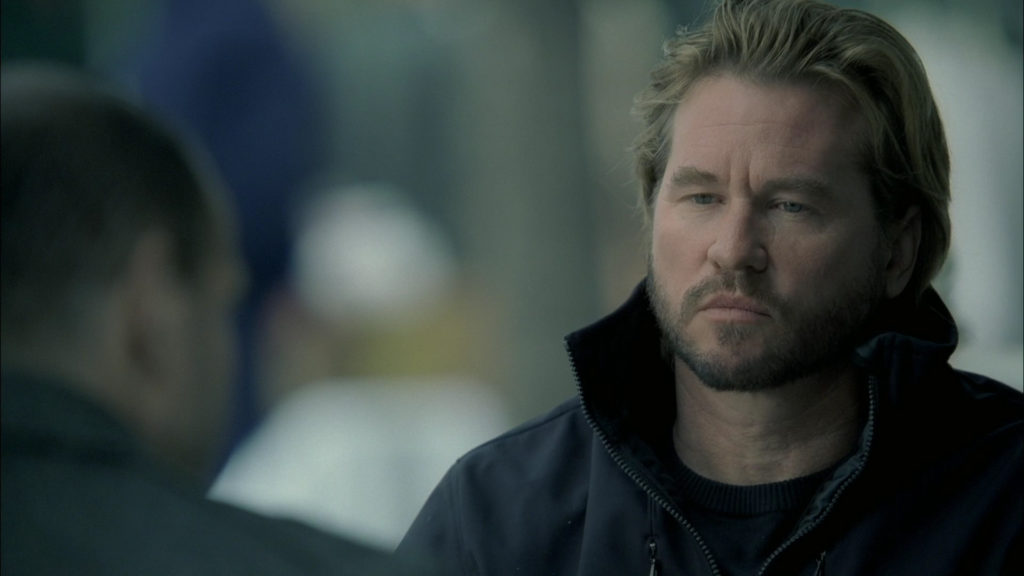
This is what separates Kilmer from the other actors of his generation. Good actors can phone in the occasional role; great actors can deliver a performance completely at odds with the movie around them. Kilmer’s talent has a degree of durability rare in the current landscape of Hollywood. He digs deep and finds that Interesting Thing™ about his character to share with his audience. It is one thing to deliver an engaging performance in serious and expensive films, quite another when you are entrenched in a string of genre films and surrounded by people making their first break into the industry. Kilmer has been in some bad movies but he’s never been bad. What higher praise can you give an actor than that?
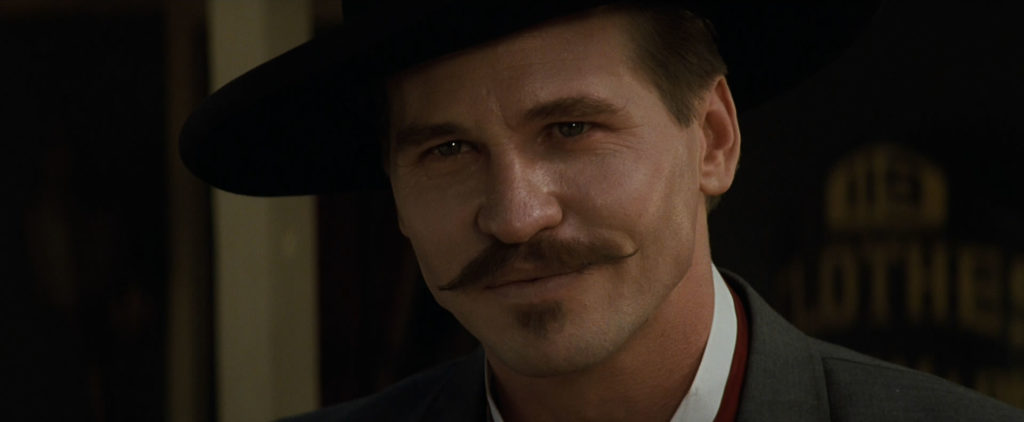
While I may choose to focus on the Kilmer of TOMBSTONE, THE GHOST AND THE DARKNESS, and SPARTAM in my own rose-tinted Kilmer-filter, a whole new generation of Netflix fans are getting to know Kilmer solely through his direct-to-streaming work in interchangeable thrillers and horror films. The actor’s modern reputation is predicated almost as much on his physical appearance – “He’s overweight! And stop trying to make ponytails happen, they’re not going to happen!” – as on his ability as an actor. This leads to inevitable conclusions about the state of his career. He’s a has-been, an actor who let himself go, a former leading man who became too difficult to work in the A-list productions of Hollywood.
And I’m here to tell you that none of this is particularly true.

Any discussion of Kilmer begins with his reputation as a difficult talent. The late John Frankenheimer, who directed Kilmer in the 1996 film THE ISLAND OF DR. MOREAU, once said that the only two things he would never do in his life were climb Mount Everest and work with Val Kilmer again. Joel Schumacher, who also directed Kilmer in 1995’s BATMAN FOREVER, referred to the actor as being “childish and impossible.” Kilmer was a method actor by both trade and reputation, refusing to break character during the production of THE DOORS and reputed to be obsessed with the minutia of his performance in TOMBSTONE. One interview with Kilmer quoted the actor as saying a minute of screen time required a day of preparation. As Kilmer’s influence within the industry grew, so did his reputation as an actor difficult to work with.
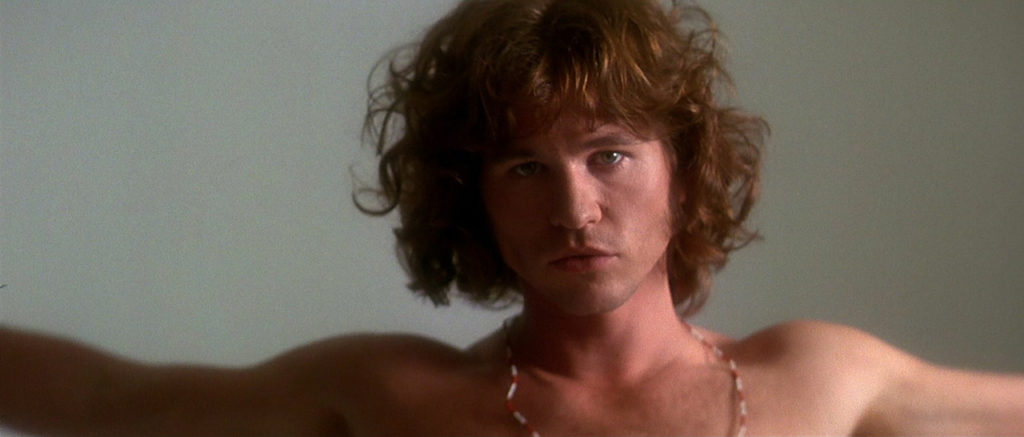
This reputation seemed to suit the actor well for a time. While Kilmer has adopted the big-budget leading man roles in Bruce Wayne and Simon Templar, he has never quite fit into the traditional model of the leading man. In many interviews, Kilmer refers to himself as lacking the persona necessary to make those types of film. “I never cultivated a personality,” he noted in a 2005 interview with Chuck Klosterman. “Almost everyone who is really famous has cultivated a personality.” In a 2012 interview with Vanity Fair, Kilmer would reiterate this statement, saying that he regretted not creating a persona years ago like his contemporaries. Kilmer contrasts this with an actor like Humphrey Bogart, who he describes as being limited in range but powerful in screen presence. This self-description is supported by Kilmer’s body of work. The films that highlight his talent – the roles that garnered critical acclaim – are all based on historical figures. In preparing for roles like Jim Morrison and Doc Holliday, Kilmer, as a method actor, would be responsible for parsing through the historical accounts and the mythos surrounding his characters and finding the truth of the person underneath.

In reviewing Kilmer’s films, it is the detail work of adaptation that seems to appeal to the actor. Rather than letting his own personality inform the creation of the character, Kilmer has dedicated himself, at times to the detriment of his reputation, to subsuming his own talent in service of the role he was playing. Would Kilmer have prolonged his success if he had focused on fitting into the role of Hollywood star? It isn’t difficult to see a career where Kilmer was known for the intensity of a Tom Cruise or the light patter of a Robert Downey, Jr., talents he has demonstrated throughout his career. Instead of narrowing the scope of his performances to cultivate an identity within Hollywood, Kilmer paved an odd path through Hollywood, taking on projects by newer directors Frank Whaley and D.J. Caruso when he could have been consolidating his power.
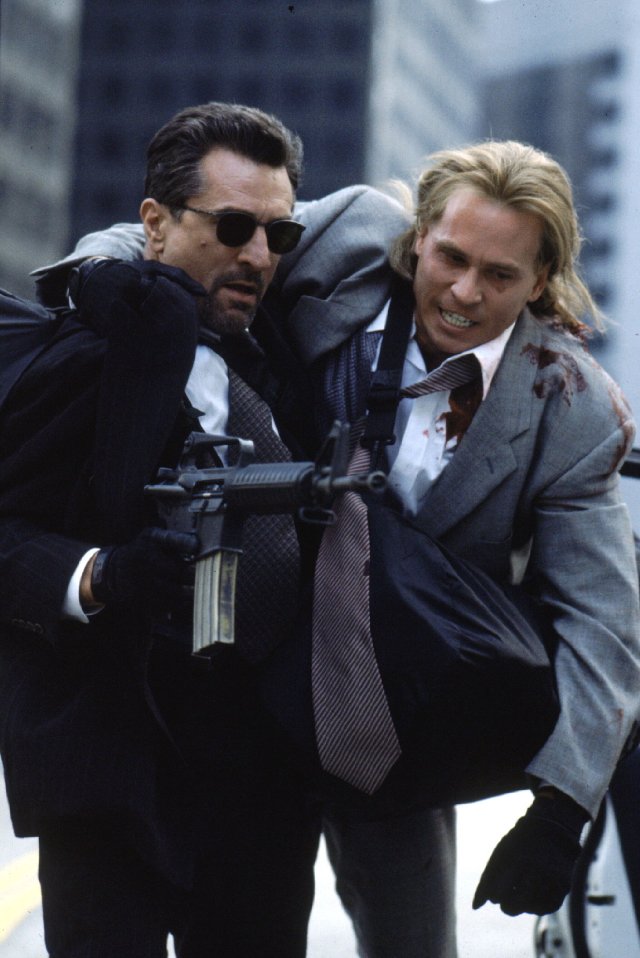
This is, of course, the irony of the man’s career; for as eclectic as his later filmography would become, the young Kilmer was notoriously discerning in the roles he selected. Kilmer turned down Kyle MacLachlan’s role in BLUE VELVET; Brad Pitt’s role in INTERVIEW WITH A VAMPIRE; William Baldwin’s role in BACKDRAFT; Keanu Reeves’s role in THE MATRIX; and Mark Ruffalo’s role in COLLATERAL, among others. While any actor will have his fair share of missed opportunities, Kilmer deserves special recognition for the quality of the roles he declined, either in terms of box office success or critical appeal. This contrasts with the recent reputation of Kilmer as a blond version of Nicolas Cage, indiscriminate in the roles and the films that he selects. While many of his recent films exhibit talent around the edges – an emerging cast member or a genuinely interesting idea at the core of the script – too many of Kilmer’s films have placed him alongside actors whose careers have already perished in the eyes of the general public. Kilmer’s presence alongside the other reputed has-beens of Hollywood has been as damaging as anything to his standing in the industry.
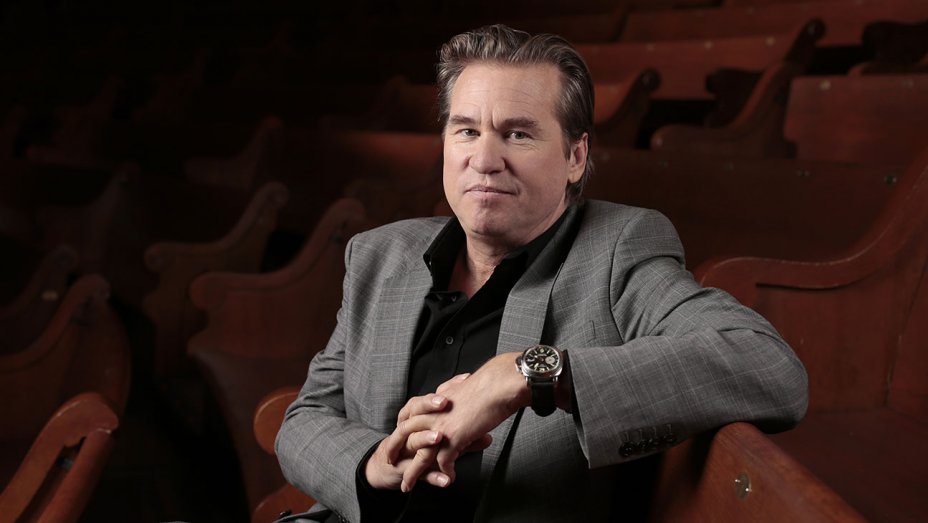
So how do we reconcile the two portions of Kilmer’s career? How can we draw a line through both the picky method actor and the indiscriminate gun-for-hire? This question touches on another theme of his interviews, mainly that his primary business plan was to simply get lucky. Consider this quote from a 2012 interview with The Hollywood Reporter: “My business plan was to get lucky, and I did, that was great. And then my second business plan was to get lucky again, and there, I faltered.”

There is the somewhat-apocryphal story that Sean Connery accepted his role in LEAGUE OF EXTRAORDINARY GENTLEMEN because he had previously been confused by the script to THE LORD OF THE RINGS and turned down the role of Gandalf. Determined not to make the same mistake twice, Connery agreed to GENTLEMEN because it seemed to be in a similar vein; he promptly retired after the movie tanked at the box office. One could argue that Kilmer’s apparent lack of discretion is an attempt to correct course from his past mistakes. Rather than passing on another MATRIX, Kilmer might have made a conscious decision to be more open to a variety of projects. This would make the second business plan of Kilmer’s career an essential lottery ticket, where he took on a multitude of projects in the hopes that one would strike it rich. In doing so, Kilmer could also be attempting to correct his reputation as an actor too difficult to cast. Low-budget horror films and thrillers are not consider particularly artistic movies; one might assume that it takes a sense of humor and a touch of pragmatism to make a living on these types of films. Repairing his reputation could go a long way towards moving Kilmer back into the realm of big-budget or high-concept projects.
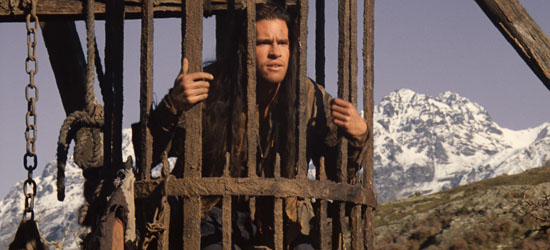
What is apparent, however, is that Kilmer seems to be enjoying his time in the direct-to-streaming marketplace. His performances do not convey a man deeply dissatisfied with his role in life but rather an actor playing in a giant sandbox on another’s dime. Kilmer is as adept as ever at finding that Interesting Thing™ to bring out onscreen. What’s more, the actor seems to be enjoying the opportunity to play the types of characters closed to him at the height of his power. His villain in THE TRAVELER? Quietly bemused at the havoc he is wreaking. His cheating husband at the beginning of 7 BELOW? Darkly funny, especially when explaining to his wife that the gas station – where he attempted to hook up with the pretty cashier – was all out of coffee. To hear Kilmer say in an interview that he regrets none of his recent choices is one thing; to see him relaxed and pithy onscreen is quite another.
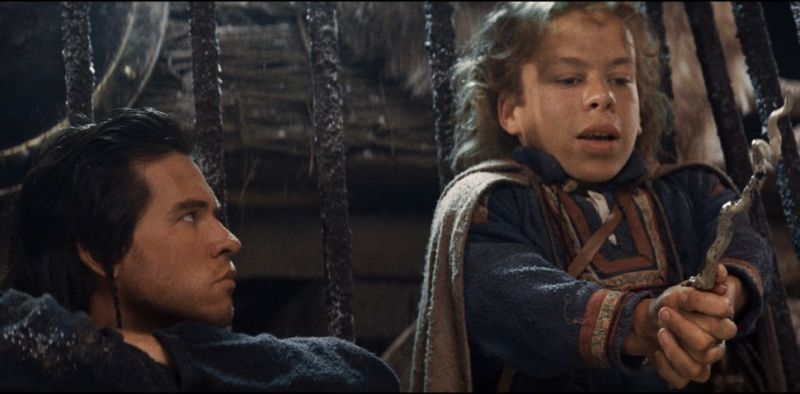
Kilmer may be an actor who has fallen on hard times and is looking for a way to get back on his feet. He may be a method actor that enjoys the opportunity to work on less-demanding characters. And he may simply be a former troublemaker on Hollywood’s version of the work-release program. The only things we will ever know for sure are that Kilmer continues to make movies and that he continues to be interesting in them. Kilmer may make a lot more bad movies these days but he still hasn’t been bad in any of them. That’s all you could ever ask for in a favorite actor.
@LabSplice
Tags: Columns, Val Kilmer, Valhalla

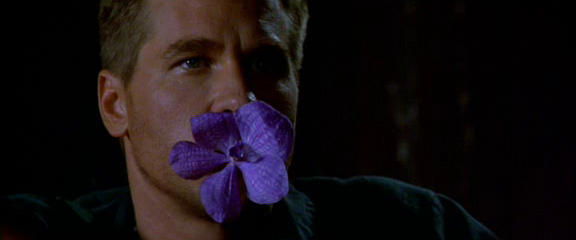
No Comments